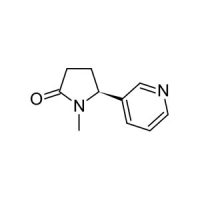One of the difficulties encountered in identifying smokers by self report is that there are many different ideas of what constitutes smoking behavior. For example, when asked about their smoking status, light or intermittent smokers will often classify themselves as nonsmokers. In order to maintain consistency in the use of various terms while gathering data on smoking behavior, the US Centers for Disease Control and Prevention have developed and updated the following definitions: (1)
- Never Smokers – Adults who have never smoked a cigarette or who smoked fewer than 100 cigarettes in their entire lifetime.
- Former Smokers – Adults who have smoked at least 100 cigarettes in their lifetime, but say they currently do not smoke.
- Nonsmokers – Adults who currently do not smoke cigarettes, including both former smokers and never smokers.
- Current Smokers – Adults who have smoked 100 cigarettes in their lifetime and currently smoke cigarettes every day (daily) or some days (nondaily).
Other terms not defined by the CDC are also frequently used:
- Light Smoker – There is no consensus on a definition for light smoking. Various criteria used have included < 1 pack per day, < 15 cigarettes per day, < 10 cigarettes per day, and 1-39 cigarettes per week. Light smokers include low-rate daily smokers (< 5 cigarettes per day) and “chippers” who consistently smoke = 5 cigarettes per day on the days when they do smoke. (2)
- Intermittent Smoker – A broad term that covers a variety of patterns of tobacco use but is generally defined as smoking on a nondaily basis. Social smokers, who limit smoking to contexts such as parties, bars, or nightclubs, often fit into this category. Intermittent smoking is also common among younger smokers and minority populations. (2)
While self-report smoking status can be effective, it is also possible to determine tobacco use through more reliable biological measures via saliva samples. When nicotine enters the body, it is absorbed and distributed within seconds. Metabolism is mainly by oxidation to cotinine and nicotine-N-oxide. The detection of exposure to tobacco smoke by measurement of cotinine is the preferred method, as levels of nicotine are not considered a valid marker of smoking status due to its relatively short half-life. Since cotinine diffuses easily from blood into saliva, salivary and serum cotinine levels are highly correlated.
Salimetrics manufactures the leading Salivary Cotinine ELISA, which is a competitive immunoassay designed and validated for the quantitative measurement of cotinine concentrations in oral fluid samples. Investigators can choose to test cotinine in their own lab with Salimetrics Cotinine ELISA Kits, or they can opt to send samples to Salimetrics SalivaLab for premium analysis.
Salimetrics has designed this assay as a quantitative research tool to provide biomedical researchers with a highly sensitive means to quantify differences in inter-individual cotinine levels. Salimetrics Salivary Cotinine ELISA may be used to measure primary or secondhand exposure to nicotine. Salimetrics cotinine assay is also sensitive enough to assess differences in tobacco use habits; including factors related to intrinsic and extrinsic predispositions that affect the physiology of nicotine metabolism, the dose of nicotine present in the cigarette (or alternative source), and health behaviors relevant to how cigarettes are smoked (e.g., vent blocking, duration and frequency of puffs).
 Contact: Salimetrics (USA)
Contact: Salimetrics (USA)
